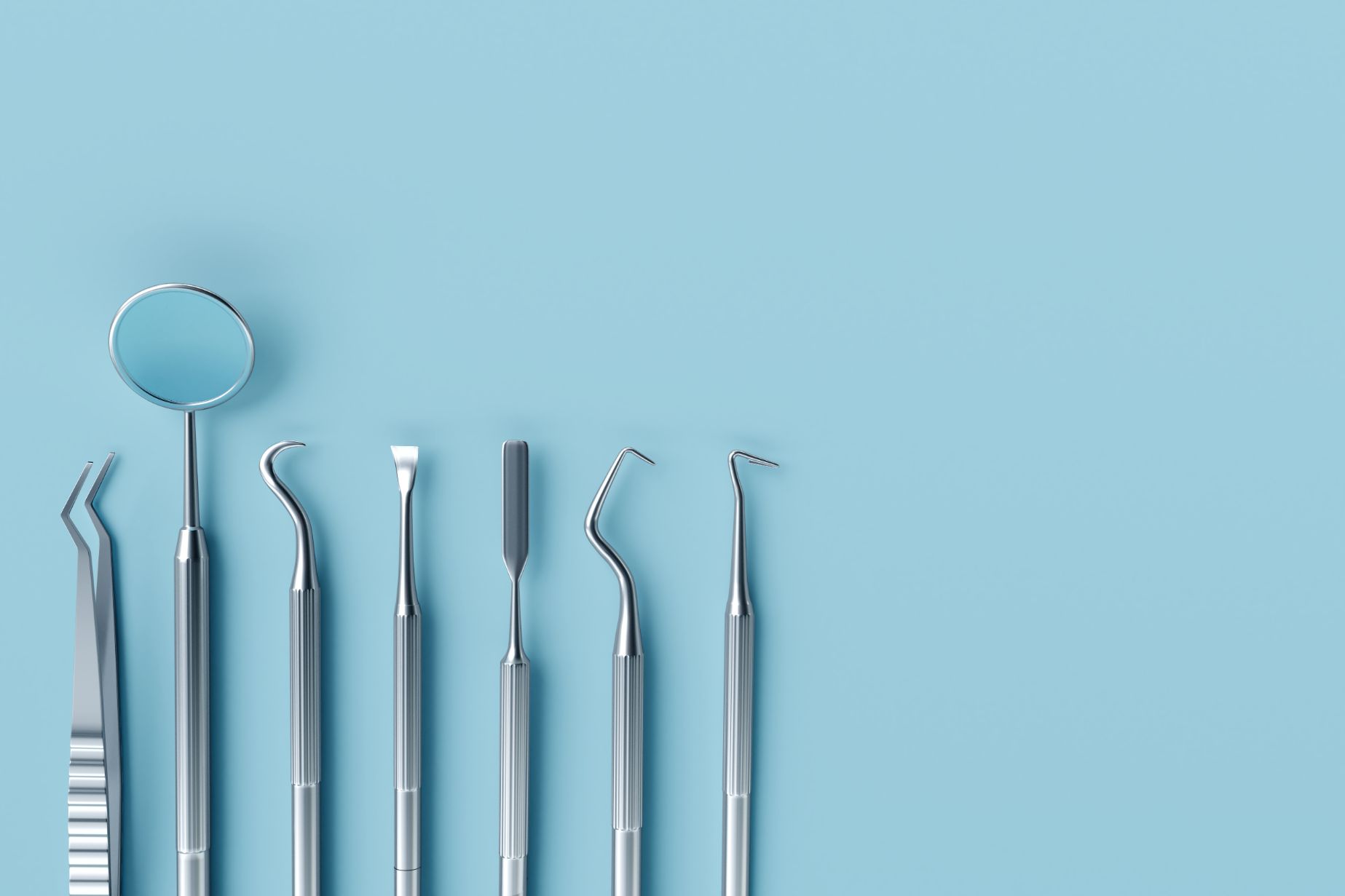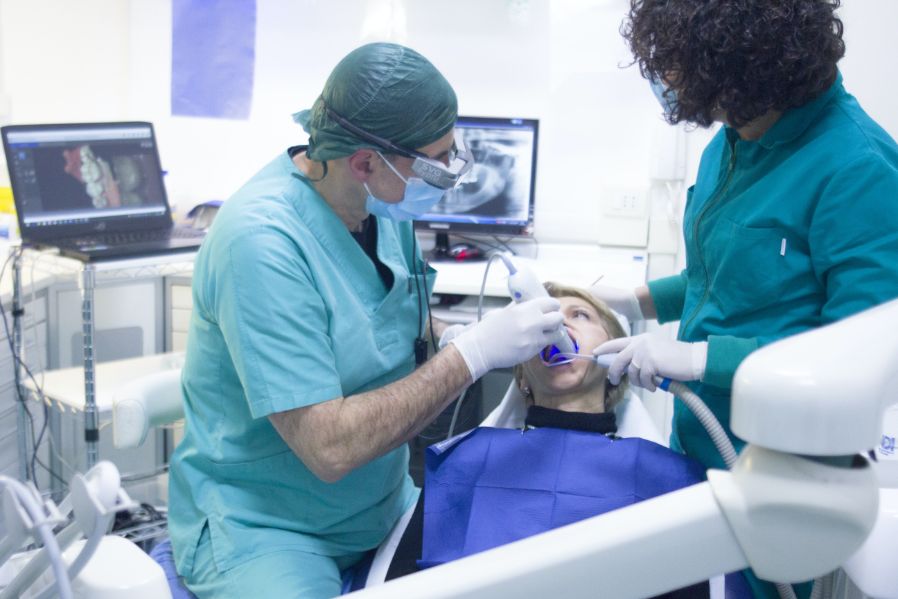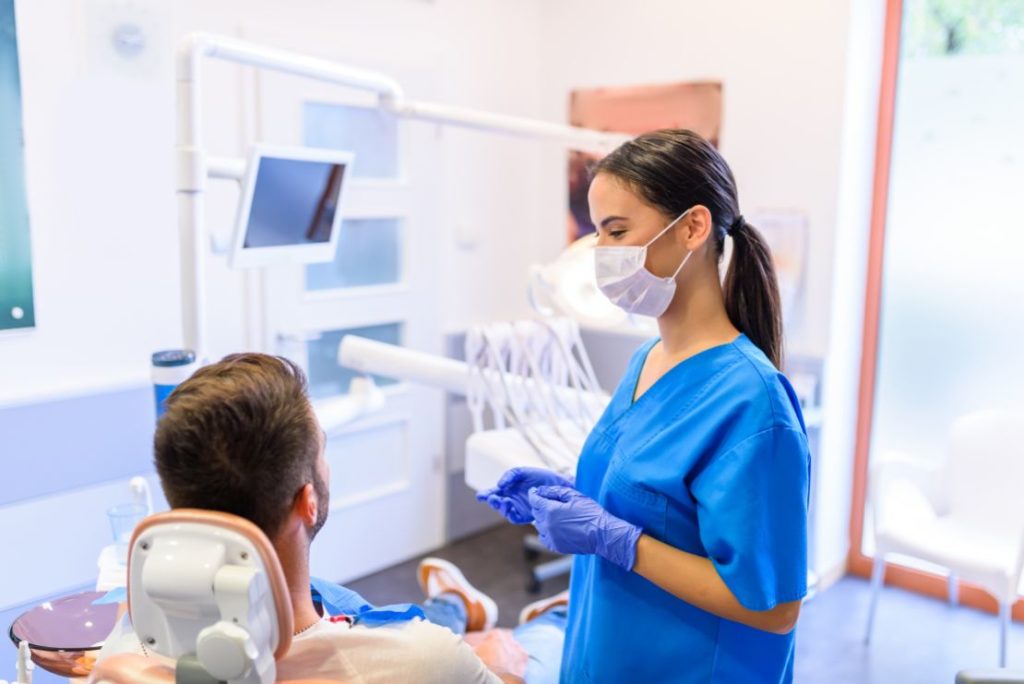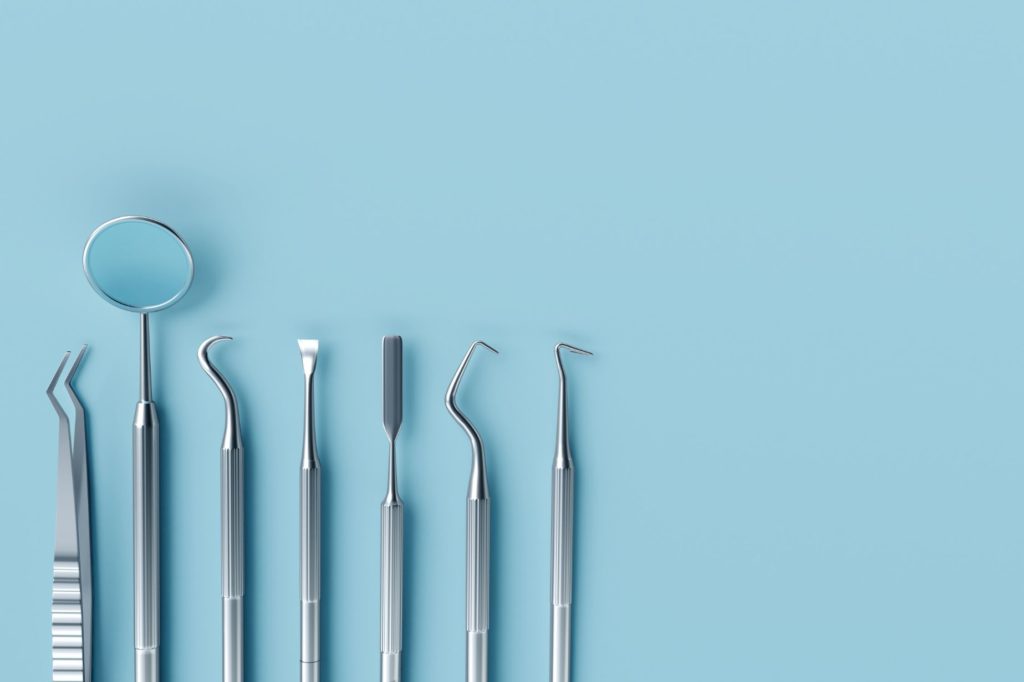
Do you want to make a positive difference in the lives of others? Consider becoming a dental assistant, a career in the healthcare field where you will assist dentists with a wide range of tasks and procedures.

While teeth might not be the first thing you think of when it comes to medical and health issues, dentists and those who work hand-in-hand with them can make differences that are life-changing for their patients. Dentists address everything from dental hygiene to oral surgery. They may also provide cosmetic dentistry services like tooth whitening. The dental assistant is the person who assists the dentist but is not a dental hygienist (the professional who cleans teeth). She is not a receptionist either, although front desk and general office duties such as answering the phones and insurance billing may be part of her work description. In a nutshell, the dental assistant is the person responsible for maintaining patient charts, sterilizing dental instruments, preparing patients for procedures, handing instruments to the dentist during procedures such as surgery or exams, scheduling appointments and follow-ups, teaching patients how to care for their teeth, handling certain lab tasks, and ensuring the comfort of patients once they are in the dentist’s exam chair. The dental assistant may also be responsible for radiography and taking vitals.
Dental assistants work wherever dentists work; generally, this means dental offices and clinics. Specifically, she will spend most of the time at a workstation by the dental chair where she will be assisting the dentist. She may rotate among a variety of exam rooms in larger dental practices.
To become a dental assistant, it is best to complete a dental assisting diploma program, pass the Radiation Health and Safety (RHS) exam, and obtain the Nationally Registered Dental Assistant (NRDA) credential. If this sounds like a lot, do not worry! There are many accredited training schools that will provide you with the training and certification prep you need, such as the Institute of Medical and Business Careers (or IMBC for short). The diploma program is usually on-campus due to its hands-on nature and will take about a year to complete. Students typically also complete an internship near the end of the program to practice their skills in a real-world environment.
The job outlook for dental assistants is strong; dental care, in general, is considered a stable employment field that expands as the general population expands.
Today we’ll have a look at the workday of a typical dental assistant working in a small dental practice.

Because the dental assistant in this scenario is the first to arrive in the morning, she unlocks the door, enters the office, washes her hands, and changes into her scrubs. She sanitizes her hands, puts on her mask, and starts up necessary office computers and systems.
She will look over the charts for the day’s appointments that were prepared the day before to make sure there are no scheduling errors or other mistakes. Once she’s sure everything is correct, she will prepare the tools and trays for the dentist and the dental hygienist. New patient questionnaires will be ready for those visiting for the first time, and before patients arrive, the dental assistant will ensure the radiography room is prepared.
Depending on what procedures are to be done that day, the dental assistant may also disinfect and sterilize rooms where patients are to be treated according to OSAP guidelines.
Finally, before the clinic opens its doors to patients, the dental assistant makes sure that there are no shortages of supplies and ensures the waiting area is clean and orderly.
Although a lot of work has already been completed, there is still much more to do, keeping the dental assistant on her toes. Now that the preparations have been done, she will greet patients, guide them to the dental chair, update their charts, and take patient histories. She may also take vitals, depending on the procedure to be performed.
Because many people are afraid of dental procedures, it is also a part of her job to calm nervous patients and get them comfortable in the chair. This can be time-consuming, but the dental assistant must show empathy and never lose patience.
Once the patient is ready, the dental assistant puts on gloves and assists the dental hygienist or dentist by handing tools, preparing the dental materials needed, cleaning, and ensuring the equipment used is sterilized.
When the patient has been treated and leaves, the dental assistant changes her gloves and mask, then prepares for the next patient. While the dentist analyzes the results of x-rays or visits other patients, the dental assistant might take dental imprints or assist with other office tasks until called to assist the dentist. Thought normally, she’ll be at her workstation next to the dental chair assisting the dentist while he performs an examination.
Aftercare instructions are then provided to the patient, and the dental assistant also gives advice on dental hygiene and dental products. If necessary, she will schedule follow-up appointments.
Once the patients are gone, she updates their charts, then cleans, disinfects, and sterilizes the rooms so that they are ready for the next patients. She also washes her hands.
If there is a lull in activity at the clinic, she might complete paperwork, data entry, conduct chart preparation, return phone calls, or assist with general office tasks.

Finally, when the clinic is closed to patients, the dental assistant cleans, disinfects, and sterilizes tools in the autoclave. The entire sterilization cycle in an autoclave usually takes well over an hour, so while the autoclave is in operation, the dental assistant will clean, disinfect, and sterilize equipment and surfaces in the patient rooms. She will also restock supplies, materials, and personal protective equipment, such as gloves, masks, and face shields. Pharmaceutical products will be organized and re-ordered if necessary.
A few minutes before leaving, she prepares the patient charts for the next day and scans the office for anything that may be out of place.
She looks over her workstation and those of the dental hygienists and dentists to make sure that nothing is missing, turns out the lights, and locks the door behind her.
Working in dentistry might be your dream job if making a difference in the lives of others is important to you. You’ll need to be organized, good with your hands, empathetic, and have a calming influence – remember that many people have anxiety when they visit the dentist, so you’ll need to help them relax. If you are a people-person with great customer service skills and enjoy performing multiple tasks in a clinical setting, a career as a dental assistant will make you smile. To get more information on dental assisting, visit the Institute of Medical and Business Careers website today.
More on a dental assisting career